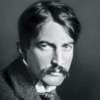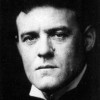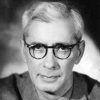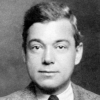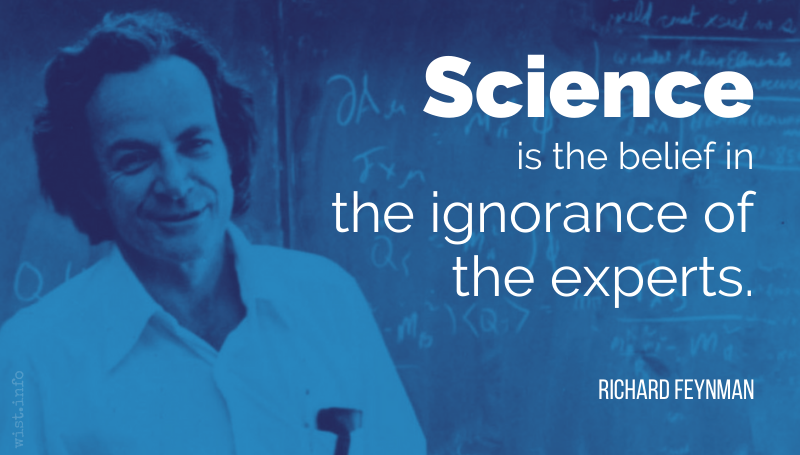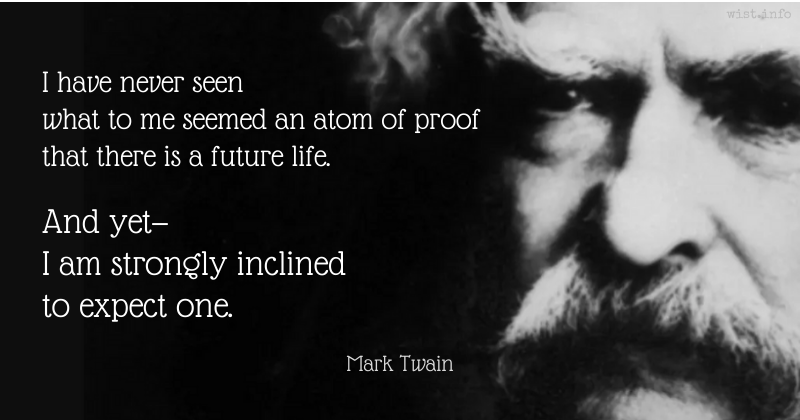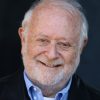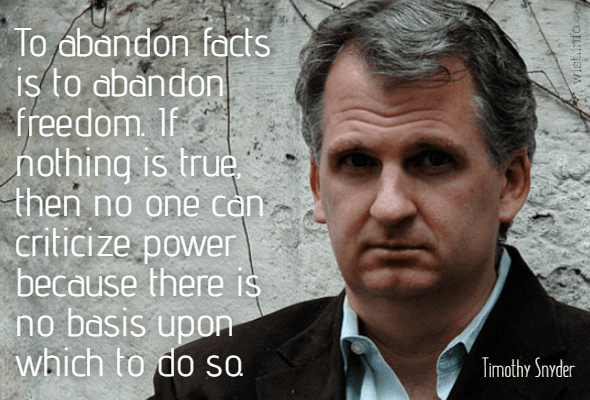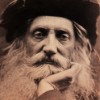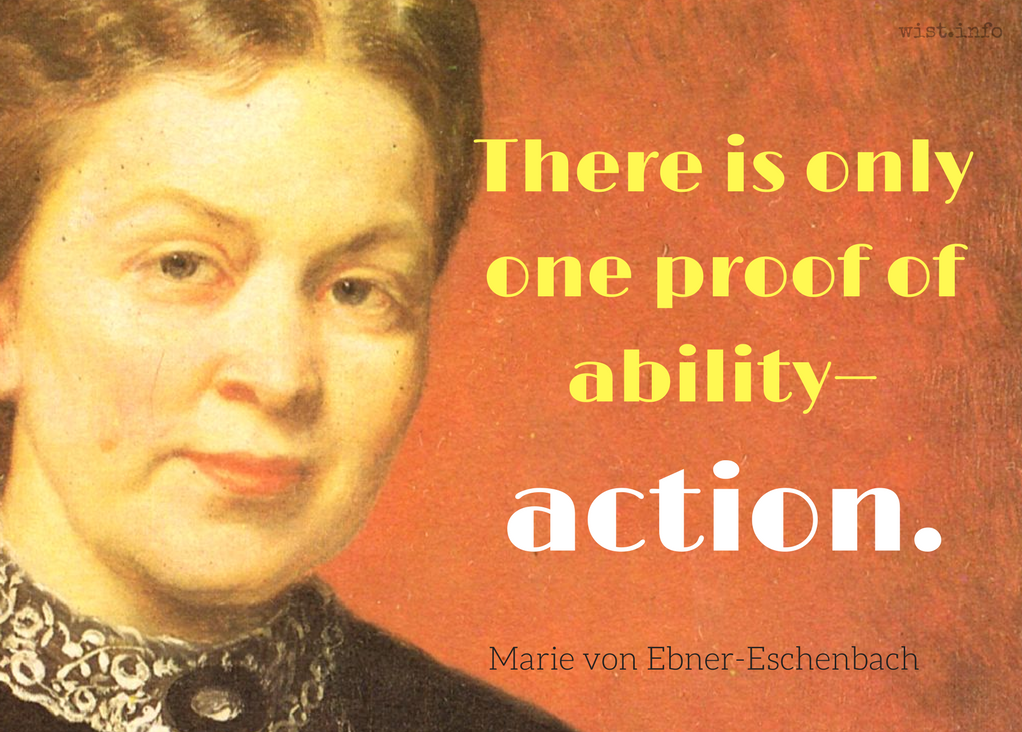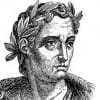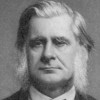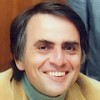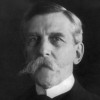When a fact can be demonstrated, force is unnecessary; when it cannot be demonstrated, an appeal to force is infamous. In the presence of the unknown all have an equal right to think.
Robert Green Ingersoll (1833-1899) American lawyer, freethinker, orator
Lecture (1873-12) “Individuality,” Chicago Free Religious Society
(Source)
Full title "Arraignment of the Church and a Plea for Individuality." Collected in The Gods and Other Lectures (1876).
Quotations about:
proof
Note not all quotations have been tagged, so Search may find additional quotes on this topic.
The same past data can confirm a theory and its exact opposite! If you survive until tomorrow, it could mean that either a) you are more likely to be immortal or b) that you are closer to death. Both conclusions rely on the exact same data.
Nassim Nicholas Taleb (b. 1960) Lebanese-American essayist, statistician, risk analyst, aphorist
The Black Swan, Part 2, ch. 11 “How to Look for Bird Poop” (2007)
(Source)
PROOF, n. Evidence having a shade more of plausibility than of unlikelihood. The testimony of two credible witnesses as opposed to that of only one.
Ambrose Bierce (1842-1914?) American writer and journalist
“Proof,” The Devil’s Dictionary (1911)
(Source)
Originally published in the "Cynic's Word Book" column in the New York American (1906-06-27).
Mistakes are, after all, the foundation of truth, and if a man does not know what a thing is, it is at least an increase in knowledge if he knows what it is not.
BANQUO: If you can look into the seeds of time
And say which grain will grow and which will not,
Speak, then, to me, who neither beg nor fear
Your favors nor your hate.William Shakespeare (1564-1616) English dramatist and poet
Macbeth, Act 1, sc. 3, l. 61ff (1.3.61-64) (1606)
(Source)
To the Witches (Weïrd Sisters).
But so long as men are not trained to withhold judgment in the absence of evidence, they will be led astray by cocksure prophets, and it is likely that their leaders will be either ignorant fanatics or dishonest charlatans. To endure uncertainty is difficult, but so are most of the other virtues. For the learning of every virtue there is an appropriate discipline, and for the learning of suspended judgment the best discipline is philosophy.
Bertrand Russell (1872-1970) English mathematician and philosopher
“Philosophy for Laymen,” Universities Quarterly (1946-11)
(Source)
Reprinted in Unpopular Essays, ch. 2 (1951).
In the end, what are man’s truths? His irrefutable errors.
[Was sind denn zuletzt die Wahrheiten des Menschen? — Es sind die unwiderlegbaren Irrthümer des Menschen.]
Friedrich Nietzsche (1844-1900) German philosopher and poet
The Gay Science [Die fröhliche Wissenschaft], Book 3, § 265 (1882) [tr. Hill (2018)]
(Source)
Also known as La Gaya Scienza, The Joyful Wisdom, or The Joyous Science.
(Source (German)). Alternate translations:But what after all are man's truths? -- They are his irrefutable errors.
[tr. Common (1911)]What are man's truths ultimately? Merely his irrefutable errors.
[tr. Kaufmann (1974)]What, then, are man's truths ultimately? -- They are the irrefutable errors of man.
[tr. Nauckhoff (2001)]
As a philosopher, if I were speaking to a purely philosophic audience I should say that I ought to describe myself as an Agnostic, because I do not think that there is a conclusive argument by which one prove that there is not a God. On the other hand, if I am to convey the right impression to the ordinary man in the street I think that I ought to say that I am an Atheist, because, when I say that I cannot prove that there is not a God, I ought to add equally that I cannot prove that there are not the Homeric gods.
Bertrand Russell (1872-1970) English mathematician and philosopher
“Am I an Atheist or an Agnostic?” sec. “Proof of God” (1949)
(Source)
Originally given as a speech, "Agnosticism v. Atheism," Rationalist Press Assoc. Annual Dinner, London (1949-05-20); then printed as "Agnosticism v. Atheism," The Literary Guide and Rationalist Review (1949-07); then released as an essay under this title later in 1949.
An atheist doesn’t have to be someone who thinks he has a proof that there can’t be a god. He only has to be someone who believes that the evidence on the God question is at a similar level to the evidence on the werewolf question.
John McCarthy (1927-2011) American computer scientist, cognitive scientist, artificial intelligence pioneer
Usenet, rec.arts.books (1992-07-23)
(Source)
If there be any man who derides the unseen world, let him consider the death of Pentheus, and acknowledge the gods.
[εἰ δ᾽ ἔστιν ὅστις δαιμόνων ὑπερφρονεῖ,
ἐς τοῦδ᾽ ἀθρήσας θάνατον ἡγείσθω θεούς.]Euripides (485?-406? BC) Greek tragic dramatist
Bacchæ [Βάκχαι], l. 1325ff [Cadmus/κάδμος] (405 BC) [tr. Vellacott (1973)]
(Source)
(Source (Greek)). Alternate translations:If any impious mortal yet contemns
The Powers celestial, let him view the death
Of Pentheus, to convince him there are Gods.
[tr. Wodhull (1809)]If anyone scorns the gods, let him look to the death of this man and acknowledge them.
[tr. Buckley (1850)]O if there be he who scorneth the great gods,
Gaze on this death, and know that there are gods.
[tr. Milman (1865)]If there be one who still disdains the gods,
Let him behold this corpse and reverence them.
[tr. Rogers (1872), l. 1293ff]Ah! if there be any man that scorns the gods, let him well mark this prince’s death and then believe in them.
[tr. Coleridge (1891)]If any man there be that scorns the Gods,
This man's death let him note, and so believe.
[tr. Way (1898)]Oh, whoso walketh not in dread
Of Gods, let him but look on this man dead!
[tr. Murray (1902)]If there is still any mortal man
who despises or defies the gods, let him look
on this boy's death and believe in the gods.
[tr. Arrowsmith (1960)]If there is any man who despises deity
let him look on Pentheus’ death, and judge that gods exist!
[tr. Kirk (1970)]If any man thinks light of the divine ones,
let him consider this man’s death, and believe in gods.
[tr. Neuburg (1988)]If there be any man who challenges or scorns
the unseen powers,
let him look on this boy's death and accept
that which is God.
[tr. Cacoyannis (1982)]If there is anyone who despises the gods,
Looking on this death, let him believe.
[tr. Blessington (1993)]So if there is anyone who disdains the gods
let him look at the death of this man here and let him believe that gods exist.
[tr. Esposito (1998)]If there is anyone who despises the divine,
he should look at this man's death and believe in gods.
[tr. Woodruff (1999)]Anyone who feels
Superior to the gods should study this:
Pentheus is dead -- believe in the gods!
[tr. Gibbons/Segal (2000)]If there is anyone who thinks nothing of heaven's power, let him look at this man's death and believe that the gods exist.
[tr. Kovacs (2002)]Let he who would defy the gods’ demands
Look at this piteous death and believe.
[tr. Teevan (2002)]If there’s anyone who insults the gods let him turn his eyes to this and let him believe.
[tr. Theodoridis (2005)]If there is anyone here who casts a disparaging eye
Upon the Divine, look now on this and know the Gods exist.
[tr. Valerie (2005)]If there's a man who disrespects the gods,
let him think about how this man perished --
then he should develop faith in them.
[tr. Johnston (2008)]If anyone still disputes the power of heaven,
let them look at this boy's death
and they will see that the gods live.
[tr. Robertson (2014)]If there are any left who would look down on the gods, let them see this.
This death.
And let them know the gods.
[tr. Pauly (2019)]If anyone, anywhere, denies the gods,
seeing this death, let him belisve in them.
[tr. Behr/Foster (2019)]If anyone scorns the daimones, let him look to the death of this man and acknowledge them.
[tr. Buckley/Sens/Nagy (2020)]
The proof of gold is fire, the proof of woman, gold; the proof of man, a woman.
Benjamin Franklin (1706-1790) American statesman, scientist, philosopher, aphorist
Poor Richard (1733)
(Source)
He wishes that he, too, had a wound, a red badge of courage.
A time-honored concept of Anglo-Saxon justice declares that a man is innocent until proven guilty. I believe that in a democratic society a man is similarly loyal until proven disloyal. No testaments of faith, no protestations of affection for his native land, and no amount of signatures will prove a bloody thing — one way or the other — as to a man’s patriotism or lack thereof.
Rod Serling (1924-1975) American screenwriter, playwright, television producer, narrator
Speech, Moorpark College, Moorpark, California (3 Dec 1968)
(Source)
Serling had refused to sign a loyalty oath before speaking, giving up the fee for his appearance.
For a truth, once established by proof, does neither gain force nor certainty by the consent of all scholars, nor lose by the general dissent.
Maimonides (1135-1204) Spanish Jewish philosopher, scholar, astronomer, physician [Moses ben Maimon, Rambam, רמב״ם]
Guide for the Perplexed, Part 2, ch. 15 (c. 1190) [tr. Friedlander (1885)]
(Source)
Alternate translation:For when something has been demonstrated, the correctness of the matter is not increased and certainty regarding it is not strengthened by the consensus of all men of knowledge with regard to it. Nor could its correctness be diminished and certainty regarding it be weakened even if all the people on earth disagreed with it.
[tr. Pines (1963)]
So when, in future times, men ask you to prove patriotism and loyalty and affection for your native land — remember that these things are not always equated with a willingness to die or to kill.
Rod Serling (1924-1975) American screenwriter, playwright, television producer, narrator
Commencement Address, Ithaca College, New York (13 May 1972)
(Source)
Those long chains composed of very simple and easy reasonings, which geometers customarily use to arrive at their most difficult demonstrations, had given me occasion to suppose that all the things which come within the scope of human knowledge are interconnected in the same way. And I thought that, provided we refrain froma ccepting anything as true which is not, and always keep to the order required for deducing one thing from another, there can be nothing too remote to be reached in the end or too well hidden to be discovered.
[Ces longues chaînes de raisons, toutes simples et faciles, dont les géomètres ont coutume de se servir pour parvenir à leurs plus difficiles démonstrations, m’avoient donné occasion de m’imaginer que toutes les choses qui peuvent tomber sous la connoissance des hommes s’entresuivent en même façon, et que, pourvu seulement qu’on s’abstienne d’en recevoir aucune pour vraie qui ne le soit, et qu’on garde toujours l’ordre qu’il faut pour les déduire les unes des autres, il n’y en peut avoir de si éloignées auxquelles enfin on ne parvienne, ni de si cachées qu’on ne découvre.]
René Descartes (1596-1650) French philosopher, mathematician
Discourse on Method [Discours de la méthode], Part 2 (1637) [tr. Cottingham, Stoothoff (1985)]
(Source)
(Source (French)). Alternate translations:Those long chains of reasons, (though simple and easie) which the Geometricians commonly use to lead us to their most difficult demonstrations, gave me occasion to imagine, That all things which may fall under the knowledge of Men, follow one the other in the same manner, and so we doe only abstain from receiving any one for true, which is not so, and observe always the right order of deducing them one from the other, there can be none so remote, to which at last we shall not attain; nor so hid, which we shall not discover.
[Newcombe ed. (1649)]The long chains of simple and easy reasonings by means of which geometers are accustomed to reach the conclusions of their most difficult demonstrations, had led me to imagine that all things, to the knowledge of which man is competent, are mutually connected in the same way, and that there is nothing so far removed from us as to be beyond our reach, or so hidden that we cannot discover it, provided only we abstain from accepting the false for the true, and always preserve in our thoughts the order necessary for the deduction of one truth from another.
[tr. Veitch (1850)]Those long chains of reasoning, simple and easy as they are of which geometricians make use in order to arrive at the most difficult demonstrations, had caused me to imagine that all those things which fall under the cognizance of man might very likely be mutually related in the same fashion; and that, provided only that we abstain from receiving anything as true which is not so, and always retain the order which is necessary in order to deduce the one conclusion from the other, there can be nothing so remote that we cannot reach to it, nor to recondite that we cannot discover it.
[tr. Haldane & Ross (1911)]These long chains of perfectly simple and easy reasonings by means of which geometers are accustomed to carry out their most difficult demonstrations had led me to fancy that everything that can fall under human knowledge forms a similar sequence; and that so long as we avoid accepting as true what it not so, and always preserve the right order for deduction of one thing from another, there can be nothing too remote to be reached in the end, or too well hidden to be discovered.
[tr. Ascombe & Geach (1971)]
The Catholic Church is an institution I am bound to hold divine — but for unbelievers a proof of its divinity might be found in the fact that no merely human institution conducted with such knavish imbecility would have lasted a fortnight.
Hilaire Belloc (1870-1953) Franco-British writer, historian [Joseph Hilaire Pierre René Belloc]
Remark to William Temple
(Source)
Quoted in Robert Speaight, The Life of Hilaire Belloc (1957). Variant: "The Catholic Church is an institution I am bound to hold divine, but for unbelievers, here is proof of its divinity, that no merely human institution run with such knavish imbecility would have lasted a fortnight."
There is a rumour going around that I have found god. I think is unlikely because I have enough difficulty finding my keys, and there is empirical evidence that they exist.
Terry Pratchett (1948-2015) English author
“I create gods all the time — now I think one might exist,” Daily Mail (21 Jun 2008)
(Source)
What can be asserted without evidence can also be dismissed without evidence.
Christopher Hitchens (1949-2011) English intellectual, polemicist, socio-political critic
“Mommie Dearest,” Slate (20 Oct 2003)
Sometimes referred to as Hitchens' Razor. The concept is not new (consider the Latin phrase "Quod gratis asseritur, gratis negatur"), but was popularized by Hitchens in discussion of contemporary discussion of religion, including in his work God Is Not Great (2007).
While cited by a number of sources to the 2003 Slate article on the canonization of Mother Teresa, the phrase does not appear in the 2016 reprint of the article at the time she was actually declared a saint.
More information (including the original Slate text): The long history of Hitchens' Razor • Background Probability.
What certainty can there be in a Philosophy which consists in as many Hypotheses as there are Phenomena to be explained. To explain all nature is too difficult a task for any one man or even for any one age. ‘Tis much better to do a little with certainty, & leave the rest for others that come after you, than to explain all things by conjecture without making sure of any thing.
Isaac Newton (1642-1727) English physicist and mathematician
Opticks, Preface (unpublished) (1703)
(Source)
Bigotry and science can have no communication with each other, for science begins where bigotry and absolute certainty end. The scientist believes in proof without certainty, the bigot in certainty without proof. Let us never forget that tyranny most often springs from a fanatical faith in the absoluteness of one’s beliefs.
Ashley Montagu (1905-1999) British-American anthropologist and humanist [b. Israel Ehrenberg, a/k/a Montague Francis Ashley-Montagu]
Science and Creationism, Introduction (1984)
The second sentence is frequently (mis)quoted:
- "Science has proof without any certainty. Creationists have certainty without any proof."
- "Religion gives us certainty without proof; science gives us proof without certainty."
As for Eisenhower himself, Welch characterized him, in words that have made the candy manufacturer famous, as “a dedicated, conscious agent of the Communist conspiracy” — a conclusion, he added, “based on an accumulation of detailed evidence so extensive and so palpable that it seems to put this conviction beyond any reasonable doubt.”
The path of sound credence is through the thick forest of skepticism.
George Jean Nathan (1892-1958) American editor and critic
Materia Critica, “Critic and Criticism,” sec. 4 (1924)
(Source)
Newton and Descartes started to try and prove that God existed in the same way as they would try and prove something in the laboratory or with their mathematics … And when you try and mix science and religion you get bad science and bad religion. The two are doing two different things. … Science can give you a diagnosis of cancer. It can even cure your disease, but it cannot touch your grief and disappointment, nor can it help you to die well.
Karen Armstrong (b. 1944) British author, comparative religion scholar
“The Reason of Faith,” Interview with Michael Brunton, Ode (Sep-Oct 2009)
(Source)
There is nobody, in the commonwealth of learning, who does not profess himself a lover of truth, — and there is not a rational creature, that would not take it amiss, to be thought otherwise of. And yet, for all this, one may truly say, there are very few lovers of truth, for truth-sake, even amongst those who persuade themselves that they are so. How a man may know, whether he be so, in earnest, is worth inquiry; and I think, there is this one unerring mark of it, viz. the not entertaining any proposition with greater assurance than the proofs it is built on will warrant. Whoever goes beyond this measure of assent, it is plain, receives not truth in the love of it, loves not truth for truth-sake, but for some other by-end.
John Locke (1632-1704) English philosopher
An Essay Concerning Human Understanding, Book 4 “Of Knowledge and Opinion,” ch. 19 “Of Enthusiasm,” sec. 1 “Love of truth necessary” (1689)
(Source)
Science is the belief in the ignorance of the experts.
Richard Feynman (1918-1988) American physicist
“What Is Science?” address, National Science Teachers Association, New York (1966)
(Source)
As to a hereafter, we have not the slightest evidence that there is any — no evidence that appeals to logic and reason. I have never seen what to me seemed an atom of proof that there is a future life. And yet — I am strongly inclined to expect one.
Mark Twain (1835-1910) American writer [pseud. of Samuel Clemens]
Quoted in Albert Bigelow Paine, Mark Twain: A Biography, Vol. 4, ch. 264 (1922)
(Source)
Maturity begins when we’re content to feel we’re right about something without feeling the necessity to prove someone else wrong.
Sydney J. Harris (1917-1986) Anglo-American columnist, journalist, author
(Attributed)
Frequently attributed to Harris, but the original source has not been found. Earliest citation I could find was in Reader's Digest (1973), where it is further credited to the Publishers-Hall Syndicate.
Details that could throw doubt on your interpretation must be given, if you know them. You must do the best you can — if you know anything at all wrong, or possibly wrong — to explain it. If you make a theory, for example, and advertise it, or put it out, then you must also put down all the facts that disagree with it, as well as those that agree with it. There is also a more subtle problem. When you have put a lot of ideas together to make an elaborate theory, you want to make sure, when explaining what it fits, that those things it fits are not just the things that gave you the idea for the theory; but that the finished theory makes something else come out right, in addition. In summary, the idea is to try to give all of the information to help others to judge the value of your contribution; not just the information that leads to judgment in one particular direction or another.
Richard Feynman (1918-1988) American physicist
“Cargo Cult Science,” commencement address, California Institute of Technology (1974)
(Source)
Believe in truth. To abandon facts is to abandon freedom. If nothing is true, then no one can criticize power because there is no basis upon which to do so. If nothing is true, then all is spectacle. The biggest wallet pays for the most blinding lights.
In our judgment of men, we are to beware of giving any great importance to occasional acts. By acts of occasional virtue weak men endeavour to redeem themselves in their own estimation, vain men to exalt themselves in that of mankind.
Henry Taylor (1800-1886) English dramatist, poet, bureaucrat, man of letters
The Statesman: An Ironical Treatise on the Art of Succeeding, ch. 3 (1836)
(Source)
There is only one proof of ability — action.
[Für das Können gibt es nur einen Beweis: das Tun.]
Marie von Ebner-Eschenbach (1830-1916) Austrian writer
Aphorisms [Aphorismen], No. 91 (1880) [tr. Wister (1883)]
(Source)
(Source (German)). Alternate translation:There is only one proof of ability: doing it.
[tr. Scrase/Mieder (1994)]
Everyone is prejudiced in favor his own powers of discernment, and will always find an argument most convincing if it leads to the conclusion he has reached for himself; everyone must then be given something he can grasp and recognize as his own idea.
In our reasonings concerning matter of fact, there are all imaginable degrees of assurance, from the highest certainty to the lowest species of moral evidence. A wise man, therefore, proportions his belief to the evidence. […] No testimony is sufficient to establish a miracle, unless the testimony be of such a kind, that its falsehood would be more miraculous, than the fact, which it endeavors to establish.
Writers the most learned, the most accurate in details, and the soundest in tendency, frequently fall into a habit which can neither be cured nor pardoned — the habit of making history into the proof of their theories.
John Dalberg, Lord Acton (1834-1902) British historian, politician, writer
Speech (1877-02-28), “The History of Freedom in Antiquity,” Bridgenorth Institute
(Source)
You can hire logic, in the shape of a lawyer, to prove anything that you want to prove.
Oliver Wendell Holmes, Sr. (1809-1894) American poet, essayist, scholar
Article (1857-11), “The Autocrat of the Breakfast-Table,” Atlantic Monthly
Collected in The Autocrat of the Breakfast Table, ch. 1 (1858).
Times of trouble best discover the true worth of a man; they do not weaken him, but show his true nature.
[Quantas autem virtutes quisque fecerit, melius patet occasione adversitatis. Occasiones namque hominem fragilem non faciunt, sed qualis sit, ostendunt.]
Thomas à Kempis (c. 1380-1471) German-Dutch priest, author
The Imitation of Christ [De Imitatione Christi], Book 1, ch. 16, v. 4 (1.16.4) (c. 1418-27) [tr. Sherley-Price (1952)]
(Source)
(Source (Latin)). Alternate translations:Who is of most virtue appeareth best in time of adversity. Occasions make not a man frail, but they shew openly what he is.
[tr. Whitford/Raynal (1530/1871)]The time of adversity shows who is of most virtue. Occasions do not make a man frail, but they do show openly what he is.
[tr. Whitford/Gardiner (1530/1955)]By occasion of adversity every man knoweth what great vertue is in himselfe, for such occasions make thee not frail, but shew thee what thou art.
[tr. Page (1639), 1.16.14]Besides we shall do well to reflect, that Afflictions and uneasy Accidents are the clearest Indication of a Man's Goodness, and the Degrees of his Improvement. For we mistake extremely in imagining that any thing which happens to us from without, is the real Cause of our doing well or ill; Adversity does not make Virtue or Vice, but exert and draw them into Practice; it does not change the Man from what he was, but only discover what he really is.
[tr. Stanhope (1696; 1706 ed.)]Besides, by outward occasions of suffering from the conduct of others, the nature and degree of every man's inward strength is more plainly discovered; for outward occasions do not make him frail, but only shew him what he is in himself.
[tr. Payne (1803)]Occasions of adversity best discover how great virtue or strength each one hath. For occasions do not make a man frail, but they shew what he is.
[ed. Parker (1841)]Besides, adversity better displays the fortitude and virtues that we possess: for these attacks to not contribute to make us frail, but rather shew us to be what we are.
[tr. Dibdin (1851)]The amount of a man's virtue is best seen in presence of adversity, for its occurrence does not make a man weak, but shows what he is.
[ed. Bagster (1860)]How much strength each man hath is best proved by occasions of adversity: for such occasions do not make a man frail, but show of what temper he is.
[tr. Benham (1874)]Occasions of adversity soonest discover how great virtue or strength each one hath. For occasions do not make a man frail, but they shew what he is.
[tr. Anon. (1901)]For the measure of every man's virtue is best revealed in time of adversity -- adversity that does not weaken a man but rather shows what he is.
[tr. Croft/Bolton (1940)]For the strength that each has will best be seen in the hour of adversity. Because such hours do not make a man weak, but show what kind of man he is.
[tr. Daplyn (1952)]Meanwhile, there is no better test of a man's quality than when he cannot have things his own way. The occasions of sin do not overpower us, they only prove our worth.
[tr. Knox-Oakley (1959)]A man’s true quality is revealed when things are difficult. Events do not make a man weak -- they only show what stuff he is made of.
[tr. Knott (1962)]The strength of one’s virtue is seen more easily when opposition comes. For such opposition does not weaken a man, but shows his mettle.
[tr. Rooney (1979)]For the strength that each person has will best be seen in times of trouble. Such times do not make us weak; they show what we are.
[tr. Creasy (1989)]
When I consider the Question, Whether there are such Persons in the World as those we call Witches? my Mind is divided between the two opposite Opinions; or rather (to speak my Thoughts freely) I believe in general that there is, and has been such a thing as Witchcraft; but at the same time can give no Credit to any Particular Instance of it.
Joseph Addison (1672-1719) English essayist, poet, statesman
Essay (1711-07-14), The Spectator, No. 117
(Source)
Agnosticism is not properly described as a “negative” creed, nor indeed as a creed of any kind, except in so far as it expresses absolute faith in the validity of a principle which is as much ethical as intellectual. This principle may be stated in various ways, but they all amount to this: that it is wrong for a man to say that he is certain of the objective truth of any proposition unless he can produce evidence which logically justifies that certainty. This is what Agnosticism asserts; and, in my opinion, it is all that is essential to Agnosticism.
There is nothing anti-intellectual in the leap of faith, for faith is not believing without proof but trusting without reservation.
William Sloane Coffin, Jr. (1924-2006) American minister, social activist
Credo, “Faith, Hope, Love” (2004)
(Source)
Many orthodox people speak as though it were the business of sceptics to disprove received dogmas rather than of dogmatists to prove them. This is, of course, a mistake. If I were to suggest that between the Earth and Mars there is a china teapot revolving about the sun in an elliptical orbit, nobody would be able to disprove my assertion provided I were careful to add that the teapot is too small to be revealed even by our most powerful telescopes. But if I were to go on to say that, since my assertion cannot be disproved, it is intolerable presumption on the part of human reason to doubt it, I should rightly be thought to be talking nonsense.
Bertrand Russell (1872-1970) English mathematician and philosopher
“Is There a God?” (1952)
(Source)
Essay commissioned by Illustrated magazine in 1952, but never published there. First publication in Russell, Last Philosophical Testament, 1943-68 (1997) [ed. Slater/Köllner].
I believe this is the earliest (chronologically) reference by Russell to his teapot analogy.
Extraordinary claims require extraordinary evidence.
Carl Sagan (1934-1996) American scientist and writer
Cosmos (1980)
Parallels a comment by Marcello Truzzi, "Extraordinary claims require extraordinary proof."
When men have realized that time has upset many fighting faiths, they may come to believe even more than they believe the very foundations of their own conduct that the ultimate good desired is better reached by free trade in ideas — that the best test of truth is the power of the thought to get itself accepted in the competition of the market.
Faced with the choice between changing one’s mind and proving there is no need to do so, almost everyone gets busy on the proof.
John Kenneth Galbraith (1908-2006) Canadian-American economist, diplomat, author
Economics, Peace and Laughter (1971)
(Source)
(also called "Galbraith's Law")
He uses statistics as a drunkard uses a lamppost — for support rather than for illumination.
Andrew Lang (1844-1912) Scottish writer, journalist, historian
(Attributed)
Original source not found, but attributed by several sources to Lang in 1937, possibly derived from a comment by A. E. Houseman. More information here.
I have argued flying saucers with lots of people. … I was interested in this: they keep arguing that it is possible. And that’s true. It is possible. They do not appreciate that the problem is not to demonstrate whether it’s possible or not, but whether it’s going on or not. Whether it’s probably occurring or not, not whether it could occur.











